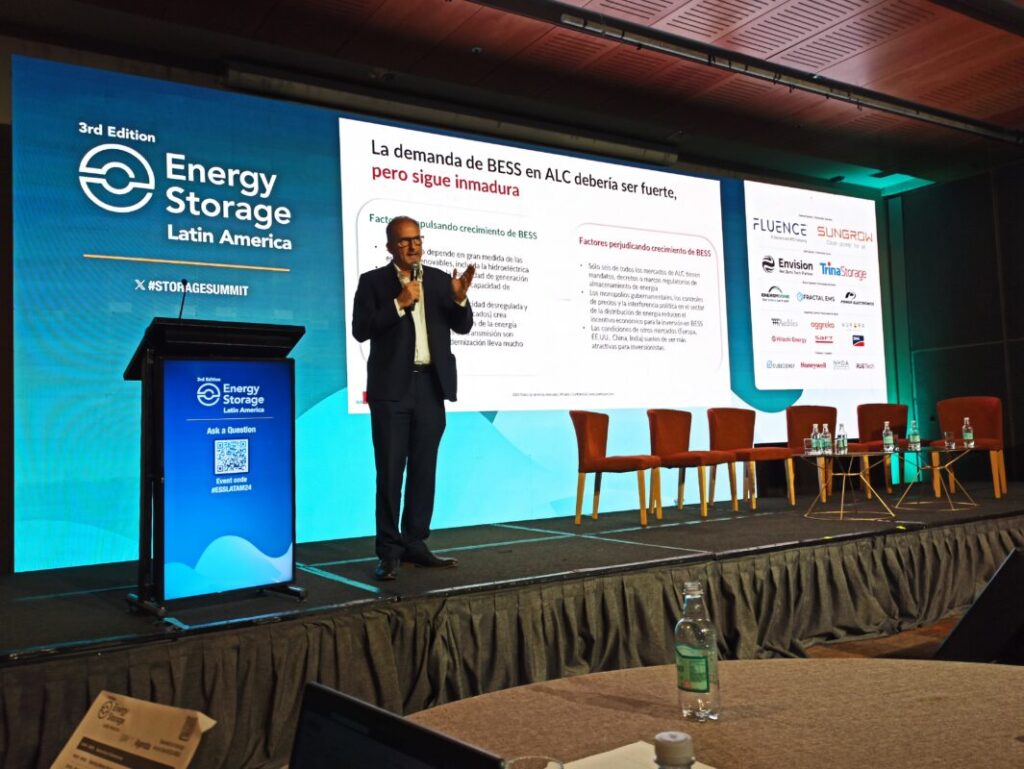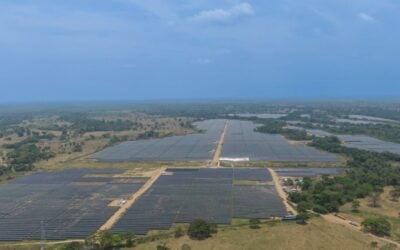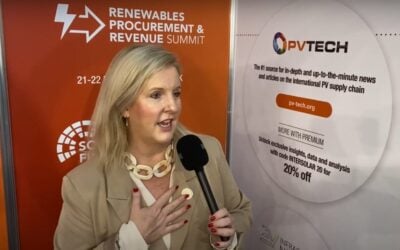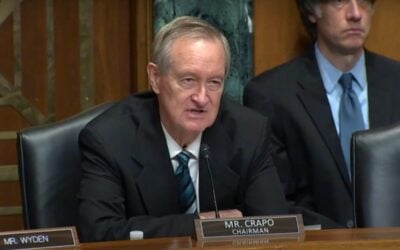
A lack of regulation and policy regarding battery energy storage systems (BESS) is challenging the growth of the technology in Latin America and the Caribbean.
During the first day of Informa’s third edition of Energy Storage Summit Latin America, held in Santiago , Chile, this week John Price, Energy Practice Co-Director at Americas Market Intelligence, explained that currently only five countries have a national storage framework. Chief among them is Chile, along with Uruguay, Panama, Costa Rica, and Puerto Rico.
Enjoy 12 months of exclusive analysis
- Regular insight and analysis of the industry’s biggest developments
- In-depth interviews with the industry’s leading figures
- Annual digital subscription to the PV Tech Power journal
- Discounts on Solar Media’s portfolio of events, in-person and virtual
“Many of the governments don’t have the technical preparation to do,” explained Price regarding the lack of regulation from many of the Latin American and Caribbean markets. “Either due to political inertia or lack of people, the regulatory situation is an obstacle for the industry,” added Price.
Moreover, only three markets offer terms of pricing or allow predicting estimates for the benefits of a BESS project, which are Chile, Puerto Rico and the Dominican Republic. Price said that soon Brazil could also be part of that list, considering the country recently unveiled a BESS tender expected to be held in June 2025.
Price added that other challenges for the growth of BESS in the region include a government monopoly in the transmission/distribution of electricity, price control and political interference in the industry of energy distribution reduce financial incentives for investments in BESS. “In many markets the government aims to protect the user with regulated prices, which causes an imbalance in the harmony of prices,” added Price.
Finally, other markets (the US, Europe, China or India) have better conditions for the investment of BESS projects.
Despite that, Price said: “We are at the tipping point of an explosion of demand for BESS projects in Latin America. And we’re seeing it nowadays in Chile.” Price added that Chile is currently the only market in the region that made all the necessary work to create a safe environment for investors to make a profit with their projects.
Aside from Brazil, which has an upcoming tender to be held in June 2025, Colombia is “recognising the importance of BESS” as a component to be integrated with renewable energy projects. Yet, the financial terms for BESS are yet to be defined. This week saw a 2MWh BESS come online there.
Regarding Mexico, the presidential change could bring a change regarding the country’s interest in BESS and renewables in general. Mexico’s president, Claudia Sheinbaum Pardo, who started her presidency at the beginning of the month aims to bring the country’s electricity generation from renewables to 45% by 2030.
However, Price said that the target might be rather complicated to reach if Sheinbaum expects to keep any new renewable projects to be co-invested with the Comisión Federal de Electricidad (CFE), which would keep 56% of the project’s capital. “Both goals are incompatible,” explained Price.
Reaching the 45% target would require a fast-paced growth of renewables in Mexico which would not be feasible due to the limited financial capacities of the CFE. In the Caribbean there are 671MWh of battery storage projects operating and announced in the region, which is led by the Dominican Republic with nearly 300MWh. It is followed by Barbados, St Kits & Nevis and the Bahamas. The top four represent over 500MWh of operational and announced projects in the region. Price highlighted the Dominican Republic as “an interesting market”.






